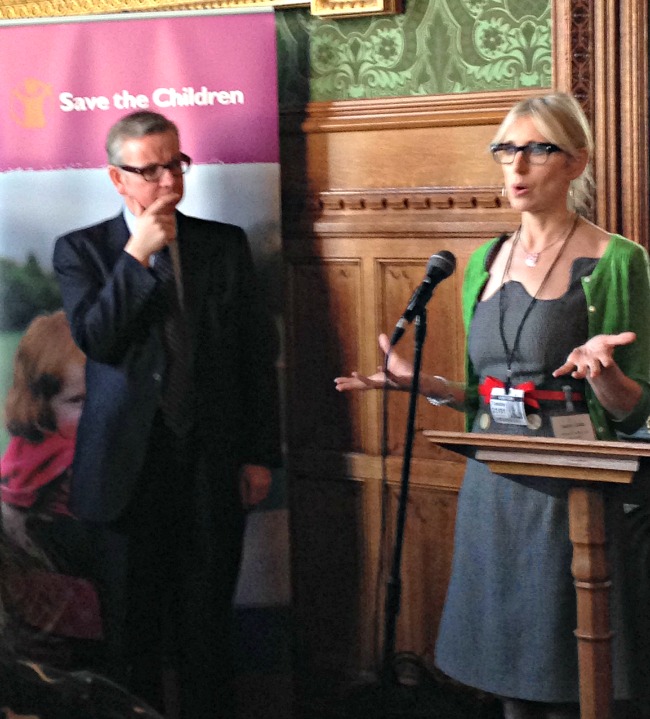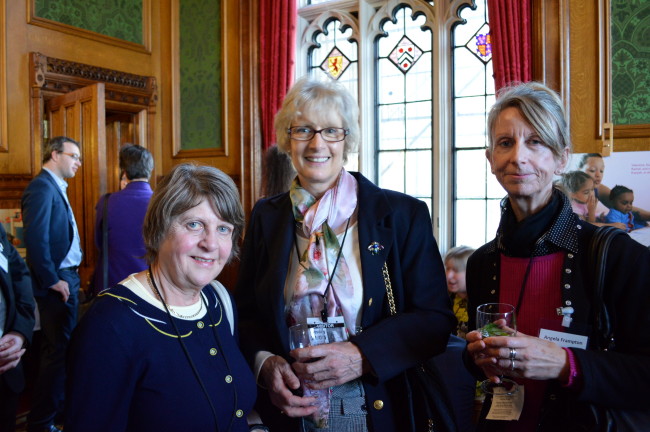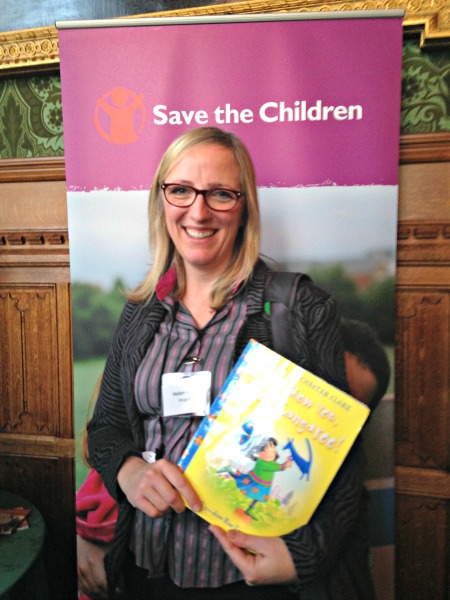My mum went somewhere really important this week. I could tell it was important because she disappeared into the back of the wardrobe and emerged in a smart shirt and crisply ironed trousers. She used to wear them when she worked near Westminster, before I was born. As it happens, she was back to her old stomping ground, but this time she was visiting the House of Lords, and this time it was reeeeeeally important.
What is Change the Story?
Considering we live in a sophisticated society, it might surprise you to know that last year 1 in 4 children left primary school without the basic reading skills to enable them to achieve 5 good GCSE’s by the time they finish their education. It may not be a surprise to discover that those children come from some of the poorest families in the UK.
I wrote about my passion for reading back in October, and I still cannot fathom how it is possible to be happy without a book in your hand. I mean, to know that there are whole worlds to be discovered, and not to be able to open the doorway to them – I can’t imagine how awful that would feel! But then I am one of the lucky ones; I know the joy that reading can bring; the pleasure of switching off totally from my mum’s demands and my brother’s annoying faces, and losing myself in a book.
I can read for fun, when I’m bored, for comfort when I’m worried about something, for new ideas to inspire me, or simply to make my homework easier. I can read online tutorials for crafting with beads, my First News for a quirky take on what’s going on in the land of adults, and I can read my mother’s blog posts to make sure there’s nothing she’s not telling me. I even read my younger brother’s homework books when he’s not looking.
 The Change the Story event this week was attended by MP’s and Peers, who heard compelling speeches from Michael Gove, secretary of state for education, and Lauren Child, famous for the Charlie and Lola children’s books. Lauren told how she had met children living in very difficult conditions, who felt that they had hope for the future when they learned to read, and could relate to characters in her books. If reading can unlock only this sense of belonging in today’s stressful world, then it is worth striving to learn.
The Change the Story event this week was attended by MP’s and Peers, who heard compelling speeches from Michael Gove, secretary of state for education, and Lauren Child, famous for the Charlie and Lola children’s books. Lauren told how she had met children living in very difficult conditions, who felt that they had hope for the future when they learned to read, and could relate to characters in her books. If reading can unlock only this sense of belonging in today’s stressful world, then it is worth striving to learn.
Why is Change the Story needed?
Save the Children want to make sure that all children have the support they need to learn to read. We spoke to Will Paxton, head of Education Policy at Save the Children to find out who the affected children are. One of the knee-jerk reactions we often hear to issues affecting education is that of immigration, and English as a second language. Will told us that immigration is not the problem:
- Recent immigrants are highly motivated, and arrive with a very strong work ethic that sees them learn to read and write the English language very quickly. Aside from small pockets of problems with one or two ethnic minority groups, those who have English as a second language work hard to catch up, and are very successful in the UK.
- In fact, the majority of children not reaching the recommended level (L2) of reading by the end of Key Stage 1 (age7) are poorer white children. The graph below shows this (blue line for white British, red line for non-white, where FSM means Free School Meal, the criteria used to determine children from poorer families).
- The reasons for this failure to achieve the basic level of reading skills are many, but often centre around parents working so many jobs to make ends meet, that they simply don’t have the time to foster a love of, and skill for reading that is needed outside of the school environment.
- Add to this a lack of spare money to purchase books, a lower level of parental education, and often a sense of intimidation around the systems used in public libraries, and you have a parent who is quite simply not able to help their child learn to read.
How YOU can help Change the Story
Save the Children have enlisted the support of children’s literacy charity Beanstalk, to help recruit “Change Makers.” A change maker is a volunteer who visits schools to listen to and support children with their reading on a one-to-one basis, providing the opportunity to learn and practice which is missing at home. We met and chatted with some of these volunteers, and what they had to say was inspiring:
Image credit: Hello it’s Gemma
The kindness of these Change Makers shone through, the clear desire to help children, and the pleasure and satisfaction they got from changing a young life, was tangible. We spoke to one man who insisted that in particular more male volunteers were needed, to provide a good male role model to inspire reading. We heard that it is not what children read that matters – one young boy started with a washing machine manual, because he enjoyed tinkering with machines with his Dad; reading will one day turn that boy into a better engineer than he might otherwise have been!
Please can you help to Change the Story?
- Anyone can volunteer to be a Change Maker. Sign up as a volunteer and for just a small time commitment you can change a child’s future.
- If you don’t have the time, but still want to help, you can donate and help Save the Children to expand their network of volunteers.
- Contact your MP and ask them to support Save the Children’s request for a backbench debate on the campaign.
- If you have a website, blog, or are active on social media, share this post and others like it on your channels, using #ChangetheStory to raise awareness and reach more potential volunteers.
I will leave you with one last thought. Attendees at the House of Lords meeting this week were asked to take in a favourite children’s book. My mum took this one, much to my alarm. You see, at the age of 2 I was prone to tantrums of frustration; I would often demonstrate my anger by throwing things, breaking stuff, and generally being a bit over-the-top. Books were a regular victim of my reluctance to go to bed, and this one suffered more than most:
We love it all the more for these carefully repaired pages. It has stood the test of time: it reminds me how far I have come with my reading; it represents the respect for books that I have learned, and how how much they enrich my life; it tells of a child for whom reading can these days dissolve daily frustrations. And it’s still a great story 😉
You can also find other bloggers talking about the campaign here:




thank you for the link and the credit.
We were privileged to be part of such an important launch. I love your sellotaped copy of blue kangaroo – that is properly loved book. That’s want books should be.
This is a great and very important cause.
Thank you for this post.
First I would like to say this is a wonderful cause.
You mention “that the failure to reach basic reading skills are many” yet you only list reasons that fall on the parental side of this discussion. I would like to see the school side added as also one of the problems for the lack of basic reading skills. Now I am in Canada but I would imagine this is a worldwide issue: teachers who fail their students. I used every possible resource in the school system to assist middle child with learning to read, and it was the school system that failed her horribly. They completely missed her learning disability and there was a teacher who literally did not care what happened with my daughter.
After setting up help privately (I worked then, and my entire paycheque went towards this) middle child’s reading skills were brought up beyond grade level and she was taught techniques to continually assist her. She is now in her last year of university (something her elementary school teachers said would never happen) and will be graduation in the spring with both a major and a minor. By the way, it took years, but she loves reading now.